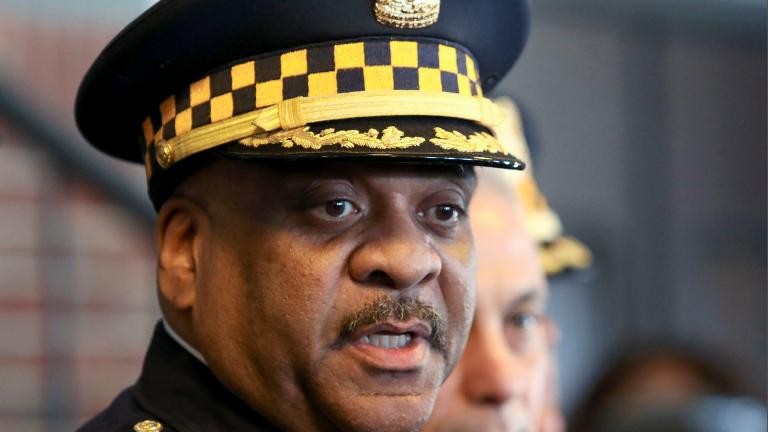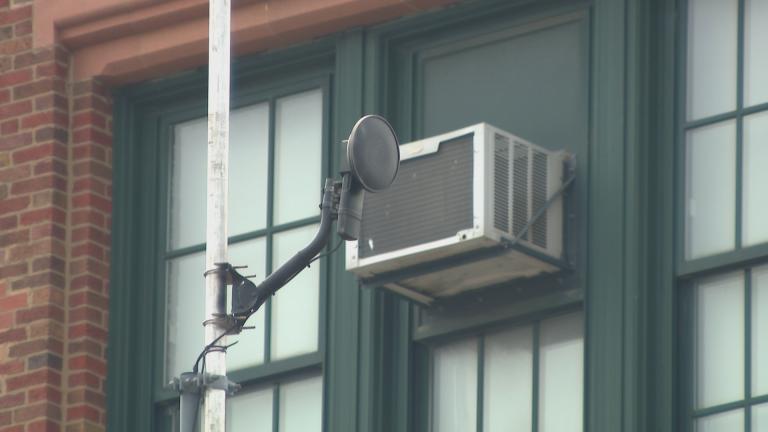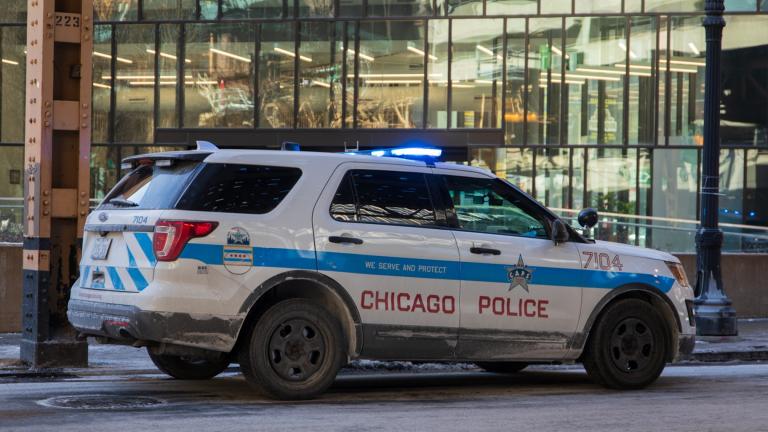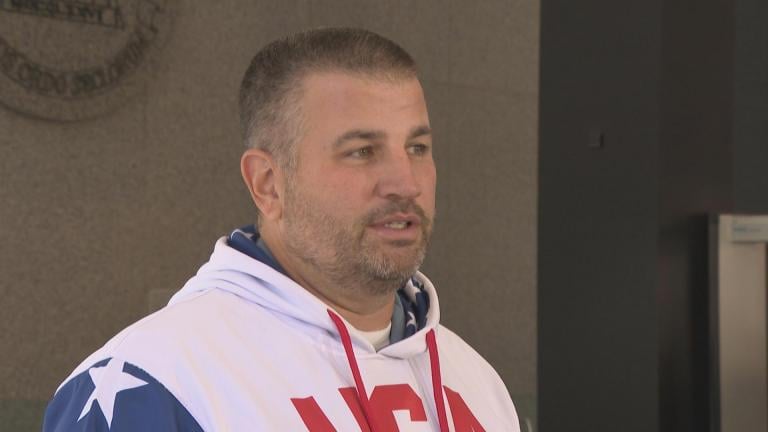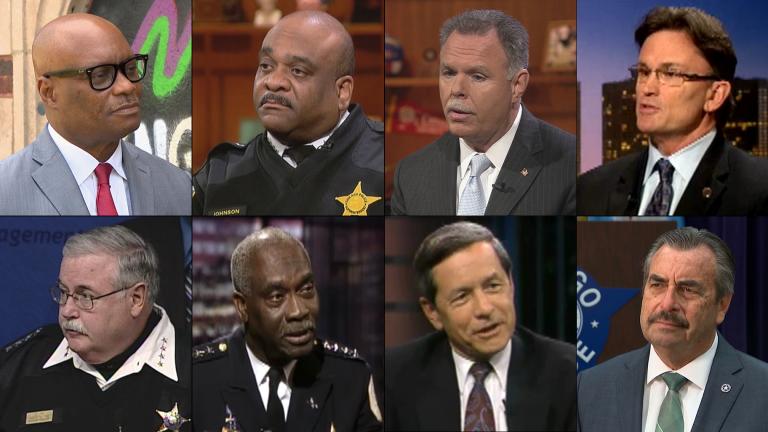The new WTTW digital series “Firsthand: Gun Violence” explores the toll gun violence takes on the Chicago residents and communities that face it. And this week on “Chicago Tonight,” we’ve asked residents, community leaders and elected officials, among others, to tell us how violence has impacted their lives and the city – and what solutions they’re bringing to the table to reduce it.
Chicago Police Superintendent Eddie Johnson is no stranger to gun violence. In addition to his 31-year career on the police force, Johnson experienced gun violence as a child growing up in the Cabrini-Green Homes, a public housing project on the Near North Side that has since been demolished.
At the end of the year, Johnson will retire after nearly four years as the superintendent. Stepping in as interim superintendent will be former Los Angeles Police Department Chief Charlie Beck, an appointment that has drawn criticism from some activists since it was announced by Mayor Lori Lightfoot last week.
Johnson says he’s known Beck for several years. “In 2016, when we were in the midst of a huge crime spike, not too many chiefs around the country wanted to talk to us about what we were doing about crime,” Johnson said during a “Chicago Tonight” interview. “Charlie Beck was one of the first people to reach out to me and he offered up any resources he could. He ultimately … loaned his chief of staff so we could work on our strategic decision support centers. And I’ll be eternally grateful for that because that’s been a contributing factor in terms of reducing the crime.”
Below, more highlights from our conversation with Johnson.
Years ago, your father was wrongly arrested, but you didn’t hold a grudge against the police. How do you deal with people who have had bad experiences or just don’t trust the police?
You know, that’s why I push back on the notion when I hear people say black people don’t want the police in their neighborhood. That’s not true. What they want is for the police to be fair and respectful.
Yeah, the police department has some bad actors. We do, just like any other organization. But the majority of cops out there are good. And my parents, they always – they taught us how to act when the police stopped us for any reason, you know, but they never taught us to just dislike the police.
Do you think more officers understand the impact of treating people with respect?
Yeah. You know what? One of the things that we did when I became superintendent, and thanks to Robin Robinson because she really pushed me in this direction, but we started taking all of our recruits to the DuSable Museum so they could understand the black plight in the city of Chicago and how the distrust came about. And I think when you when you give them those lessons, it reinforces to them that, hey, wait a minute, maybe these people do have a valid point. So let me not do that. So I think that was one of the best things we did.
And the use of force training, the sanctity of life and de-escalation, I think has been huge because in 2011, in the last 10 years, that was our worst year in the last 10 years in terms of use of force incidents against the public. We had like 91 incidents by Nov. 14 of 2011. Now today, fast-forward to 2019, we’ve only had 16 use of force incidents for the year. And three of those were off-duty cops who all three victims of attempted carjackings. So 13 on-duty use of force events and that’s phenomenal. And it’s because of, I think, the relationships we’ve built. Letting officers see what they have to deal with when they go into different communities. And the training and the accountability, I think have all contributed to that reduction.
You’re a proponent of community policing, as is Mayor Lori Lightfoot, but the mayor has actually cut the community policing budget by 7% (about $380,000) and cut 16 jobs in that office, including 13 community organizers. Is that a mixed message?
Well, the positions that were cut were vacant, positions that weren’t being utilized anyway. And then we moved – shuffled some things around. So, no, I don’t think it’s a mixed message. I think we have to be efficient in the way that we use our resources and do it in a way that is actually impactful. And I think we’re doing that. Now, are we where we want to be? No. So there’s more work to be done. But I’m confident that that work will continue well after I’m gone.
Related stories:
Police Board Prepares Search for Eddie Johnson’s Permanent Replacement
The Week in Review: Top Cop to Retire, Former LAPD Chief to Step In
Ex-LAPD Top Cop Charlie Beck Named Interim Chicago Police Superintendent
Former Interim Police Superintendent Weighs in on Johnson’s Retirement
Tough Challenges Ahead for Chicago’s Next Top Cop
Top Cop Eddie Johnson Announces Retirement: ‘It’s Time’

